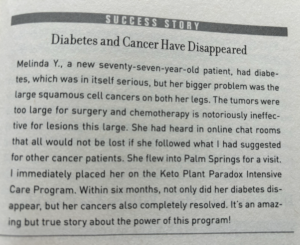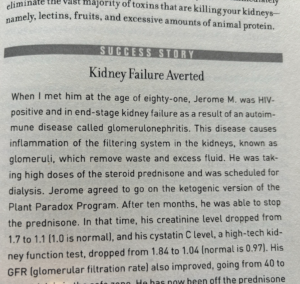What Is A Lectin Free Diet?
We may earn money or products from the companies mentioned in this post.
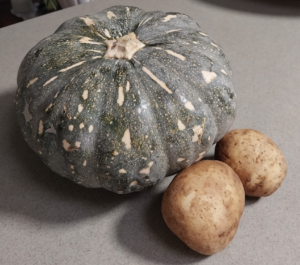
I came across the concept of a lectin-free diet while exploring ways to enhance my health and well-being. This peculiar diet stems from Dr. Steven Gundry’s book that I first read; ‘The Plant Paradox,’ which emphasizes the idea that certain plant-based proteins called lectins could influence our health negatively. While it may seem counterintuitive to question the health benefits of plants, Gundry’s hypothesis sparked my curiosity.
Lectins are a type of protein found in many plants, serving as a defense mechanism against predators. They’re abundant in legumes, grains, and nightshade vegetables, among others. The claim is that these proteins can resist digestion and potentially cause issues such as inflammation and digestive discomfort when they interact with our gut lining.
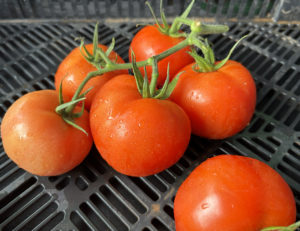
The lectin-free diet, as proposed by Dr. Gundry, suggests that by eliminating foods high in lectins, we could potentially alleviate certain health issues and promote wellness. This diet is quite distinct from other prevailing health trends, as it encourages us to look more skeptically at foods often deemed healthy, such as whole grains and tomatoes.
The backbone of this diet involves identifying and avoiding high-lectin foods, incorporating lectin-free foods, and being aware of how certain cooking methods can reduce lectin content in foods that are otherwise problematic. As I delve into its nuances, the diet continues to surprise me with its unique standpoint and proposed benefits. Like in his book, it’s about going back to the way we used to eat and follow organic food, without the preservatives, processing, additives and similar things that are making us all sick.
The Science Behind Lectin Avoidance
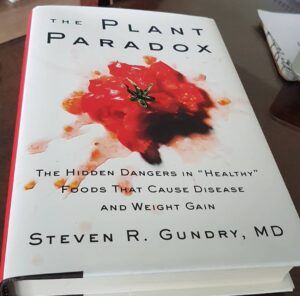 Dr. Steven Gundry’s work, ‘The Plant Paradox‘, presents a compelling case for the lectin-free diet, laying out a perspective that challenges conventional dietary wisdom. Lectins, which are a type of protein found in certain plants, are claimed to have a negative impact on gut health and overall wellbeing. The premise is that these proteins can bind to the cells lining your gastrointestinal tract, potentially leading to a range of health issues, including inflammation and autoimmune diseases.
Dr. Steven Gundry’s work, ‘The Plant Paradox‘, presents a compelling case for the lectin-free diet, laying out a perspective that challenges conventional dietary wisdom. Lectins, which are a type of protein found in certain plants, are claimed to have a negative impact on gut health and overall wellbeing. The premise is that these proteins can bind to the cells lining your gastrointestinal tract, potentially leading to a range of health issues, including inflammation and autoimmune diseases.
A closer look at the research highlighted in his books offers a mix of clinical studies and anecdotal evidence, which together suggest that reducing or removing lectin intake could provide health benefits. These studies mainly involve the observation of dietary changes and their impacts on health markers in subjects. However, it’s relevant to note that while some individuals report significant improvements in health after following a lectin-free diet, the scientific community is still debating the extent of lectins’ effects.
Despite criticisms, there is no denying that individuals have experienced positive health outcomes as detailed in the numerous testimonials featured in Gundry’s books and videos, as well as myself included. As readers, you can weigh up your own pros and cons, understanding that while diet modifications can lead to improvements in health, you need to monitor your own situation. The nuances of individual health and nutrition should always guide one’s dietary choices.
How to Implement a Lectin-Free Diet in Daily Life
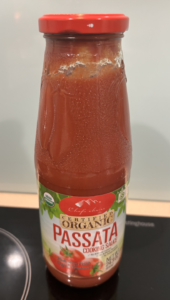
Starting on a lectin-free diet can seem daunting at first, but with the right knowledge, it’s manageable. Here’s how you can make this lifestyle change smoothly.
The initial step is to identify which foods are high in lectins. Check out his recommended yes and no list of foods. Most foods high in lectins generally include grains, legumes like beans and peanuts, nightshade vegetables such as tomatoes and potatoes, and some dairy products. You’ll want to steer clear of these. I started, by using up what we already had in the fridge and cupboards and then no longer purchasing those. Like with pasta sauce, I switched from general tomato pasta sauces to “passata” which doesn’t contain the skin or seeds.
Instead, focus on incorporating lectin-free alternatives into your meals. Look for foods such as leafy greens, cruciferous vegetables, avocados, and organic extra virgin olive oil. Eating in-season and peeling and deseeding certain fruits and vegetables can also help reduce lectin content.
Meal planning is crucial. Prepare a weekly menu in advance, keeping in mind the lectin-free guidelines. Find recipes that work within these parameters to avoid the temptation of falling back on old habits. I find it’s easier to eat what you have bought and what’s available at home for an easy grab. This means I’m always prepared now and make sure we have emergency meals in the freezer, cooked up sweet options like biscuits or cakes in the freezer too. I always have Gundry approved nuts available too for when we feel snacky.
Adapting to dining out and attending social events I found, requires extra effort. When possible, review the menu ahead of time and don’t be shy about asking how the food is prepared. Most restaurants are willing to accommodate dietary requests. I also follow Dr Gundry’s recommendation here and grab a handful of his lectin free nuts he recommends before we head out so I’m not as hungry as well. Then I usually look at the side dishes like salads and vegetables.
The transition to a lectin-free lifestyle is a significant adjustment and maintaining it can be challenging. However, remember that it’s about making smarter food choices, not about perfection. Explore, adjust, and find what works for you in the long term. I have recipes on this website which I have shared as well and will continue to add and share that have worked for us.
Real-Life Outcomes: Testimonials and Success Stories
 Once you’re familiar with the principles of a lectin-free diet, the next crucial step is examining its real-world impact. Dr. Gundry’s book, ‘The Plant Paradox,’ is rife with testimonials that form a compelling narrative for the diet’s success.
Once you’re familiar with the principles of a lectin-free diet, the next crucial step is examining its real-world impact. Dr. Gundry’s book, ‘The Plant Paradox,’ is rife with testimonials that form a compelling narrative for the diet’s success.
In the heart of this section, we find rich stories from individuals who have turned their lives around, crediting the lectin-free approach for their improved well-being. These anecdotes serve to provide a human element, allowing us to connect with the content on a deeper level.
His videos and podcast will complement the book by bringing success stories to life. They put a face to the names, adding authenticity and trust in the power of a lectin-free lifestyle. Seeing real changes in real people can be a powerful motivator.
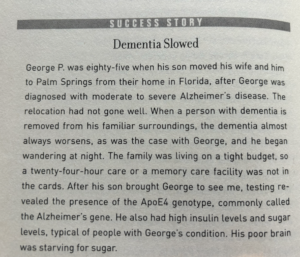 Of course, navigating through the twists and turns of dieting is never without its challenges. The Plant Paradox community shares not only successes but the hurdles as well, providing a balanced perspective. Learning from their experiences can provide valuable insight to those new to the diet or facing similar obstacles.
Of course, navigating through the twists and turns of dieting is never without its challenges. The Plant Paradox community shares not only successes but the hurdles as well, providing a balanced perspective. Learning from their experiences can provide valuable insight to those new to the diet or facing similar obstacles.
As I conclude, I weigh the success stories with a level head. It’s important to remember that individual results may vary and what works for one person might not work for everyone. Consulting healthcare professionals before making significant dietary changes is crucial.
Ultimately, these narratives of transformation offer hope. They suggest that with dedication, a lectin-free diet could indeed be a key to unlocking a healthier lifestyle. Yet, it’s essential to approach this path with care, ensuring it aligns with your unique health needs and circumstances. This isn’t just a diet for me, it’s a permanent lifestyle!
Here’s some extra “Success Stories” from Dr Gundry’s book “The Plant Paradox”:
